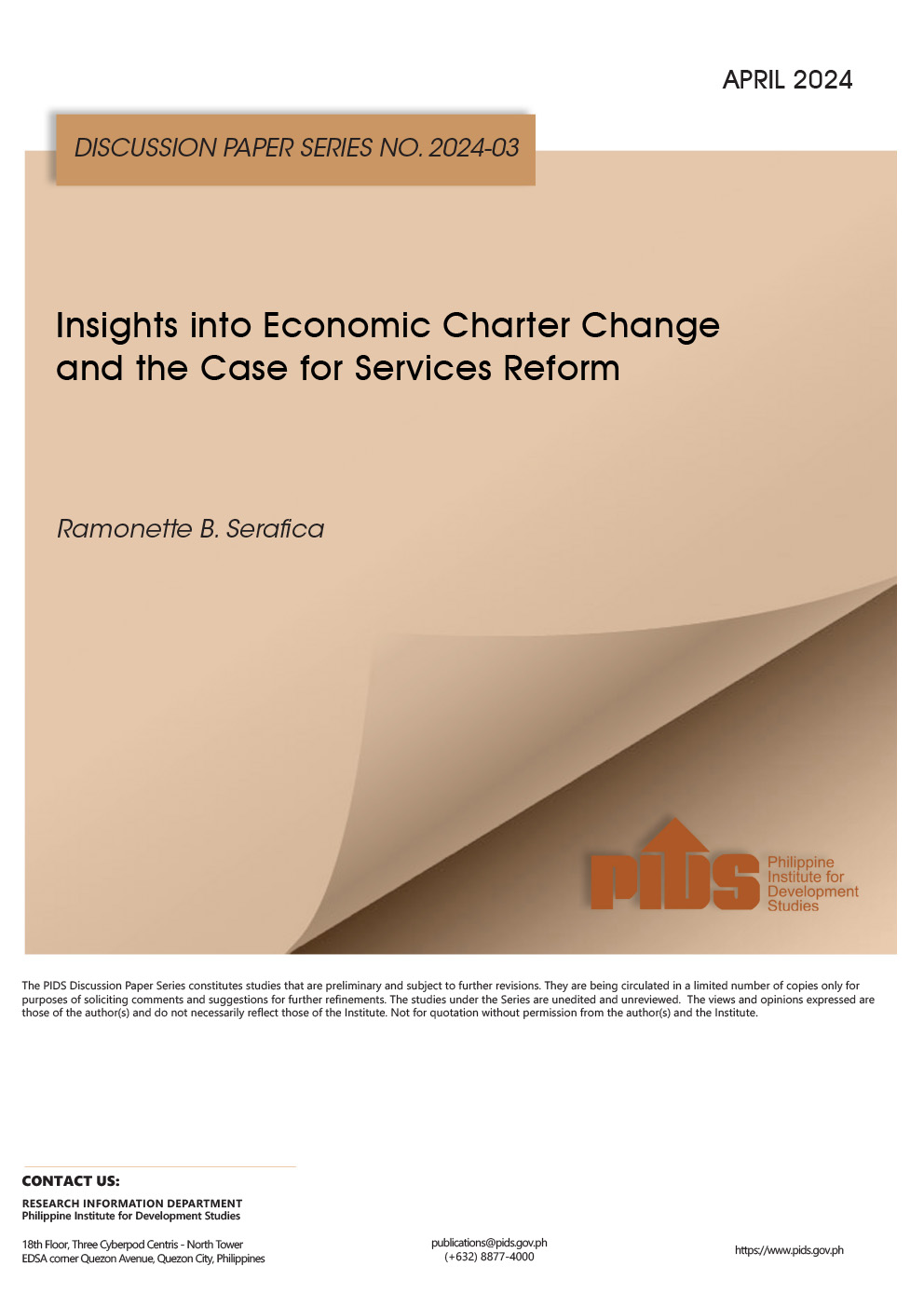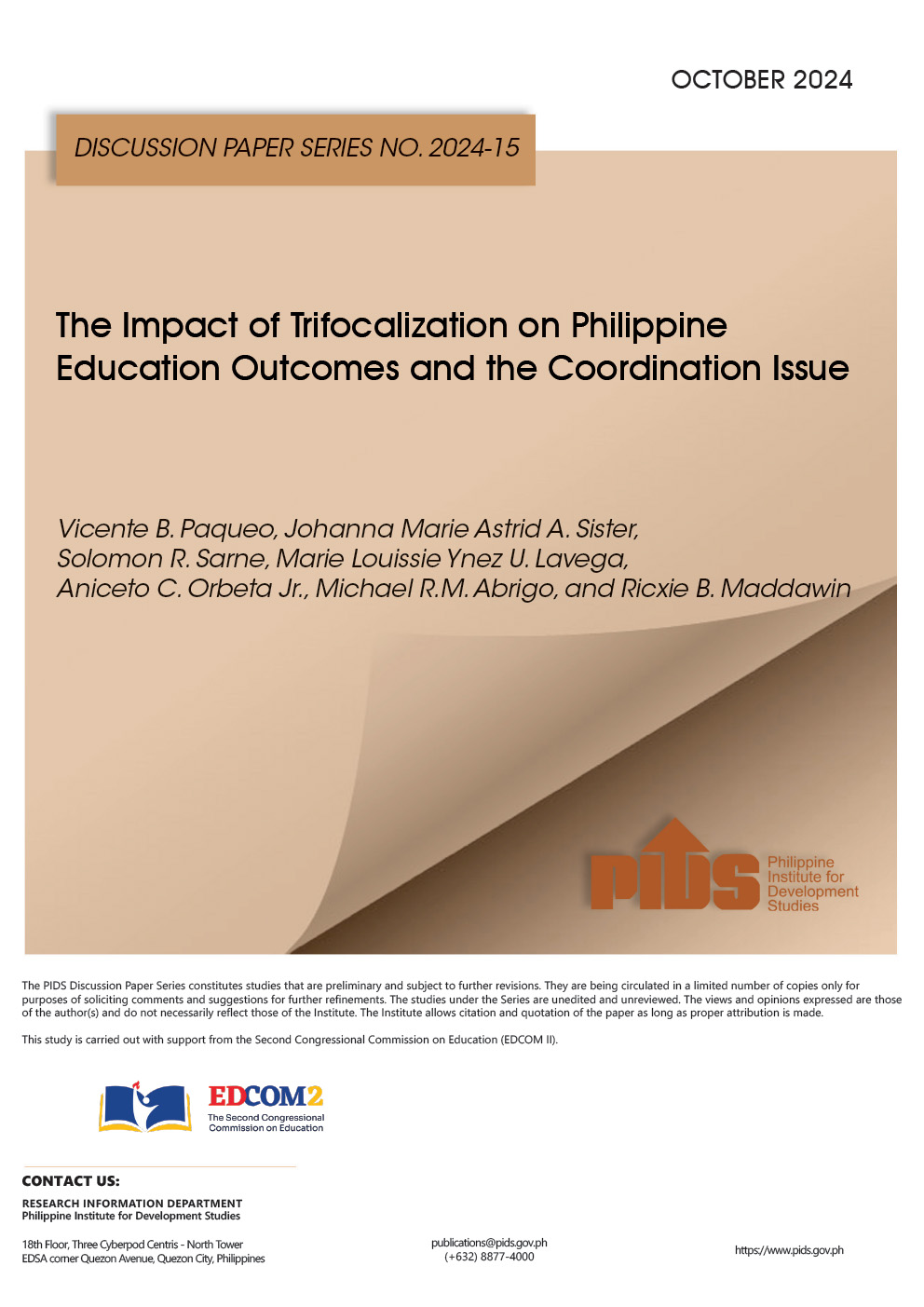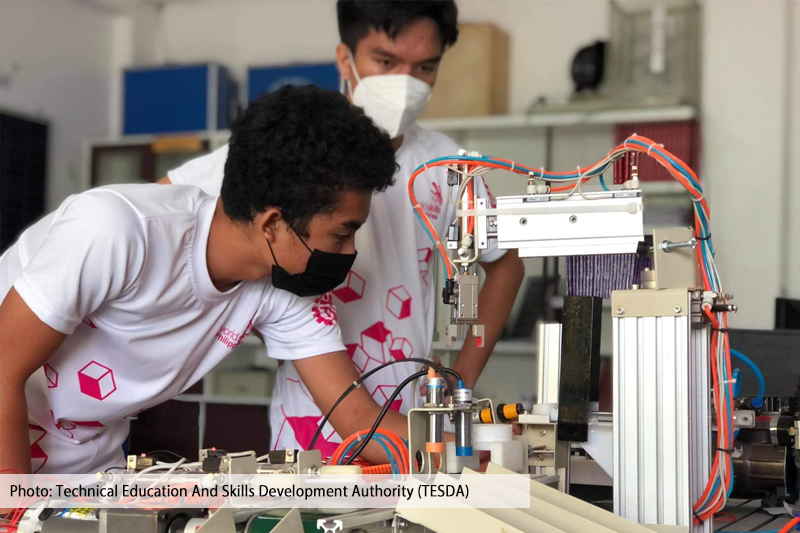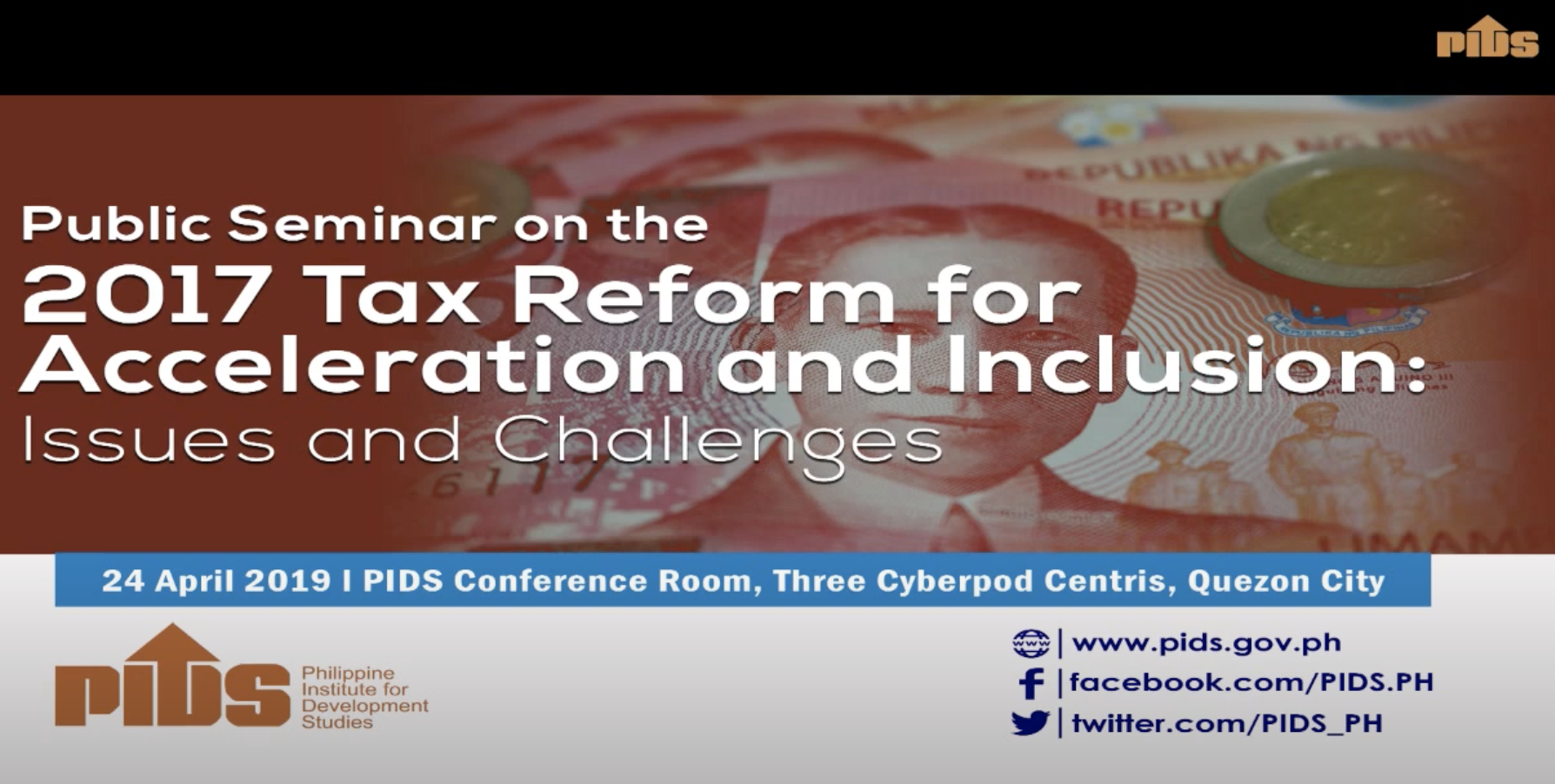State-run think tank Philippine Institute for Development Studies (PIDS) is urging presidential candidates to consider comprehensive tax reform so that taxes slapped on incomes could be reduced while increasing those on consumption.
“As the presidential election looms, tax reform has increasingly become a critical election issue. Tax reform is overdue and experts opine that a comprehensive tax reform should be a top priority for the presidential candidates,” PIDS said in a statement yesterday.
“I think our candidates should make a stand on this issue so that voters know what they are voting for,” senior research fellow Rosario G. Manasan was quoted by PIDS as saying at a recent forum.
Manasan told the forum that the government “should look for new revenue measures to compensate for the projected revenue loss that will arise as a result of the implementation of any of the various proposals to restructure the personal income tax.”
In the PIDS discussion paper titled “Comparative Assessment of Various Proposals to Amend the Personal Income Tax” published last year, Manasan said proposals to cut income taxes or index rates “appear to be well-justified from the perspective of the need to eliminate the bracket creep and ease the tax burden on Filipino personal income taxpayers relative to their Asean neighbors.”
The personal as well as corporate tax rates in the country are among the highest in the region.
President Aquino, however, had shot down proposals to cut income tax rates, warning of a shortfall in government funds.
For Manasan, among the feasible sources of new tax revenues to compensate for lower income taxes included raising the value-added tax (VAT) rate, which currently stands at 12 percent.
She cited that “a one-percentage point increase in the VAT rate is enough to recover approximately P26.25-billion loss in revenue from other taxes such as the personal income tax.”
But Manasan cautioned that a higher VAT rate “would nullify the increased purchasing power resulting from the modification in the personal income tax rate schedule, especially among the poorer segment of the population.”
“Increasing the VAT will only recover revenue loss to a certain point, assuming that the increase in disposable income is fully spent. Moreover, the poorest will remain the hardest hit if the price of goods increases proportional to the VAT,” she pointed out.//
“As the presidential election looms, tax reform has increasingly become a critical election issue. Tax reform is overdue and experts opine that a comprehensive tax reform should be a top priority for the presidential candidates,” PIDS said in a statement yesterday.
“I think our candidates should make a stand on this issue so that voters know what they are voting for,” senior research fellow Rosario G. Manasan was quoted by PIDS as saying at a recent forum.
Manasan told the forum that the government “should look for new revenue measures to compensate for the projected revenue loss that will arise as a result of the implementation of any of the various proposals to restructure the personal income tax.”
In the PIDS discussion paper titled “Comparative Assessment of Various Proposals to Amend the Personal Income Tax” published last year, Manasan said proposals to cut income taxes or index rates “appear to be well-justified from the perspective of the need to eliminate the bracket creep and ease the tax burden on Filipino personal income taxpayers relative to their Asean neighbors.”
The personal as well as corporate tax rates in the country are among the highest in the region.
President Aquino, however, had shot down proposals to cut income tax rates, warning of a shortfall in government funds.
For Manasan, among the feasible sources of new tax revenues to compensate for lower income taxes included raising the value-added tax (VAT) rate, which currently stands at 12 percent.
She cited that “a one-percentage point increase in the VAT rate is enough to recover approximately P26.25-billion loss in revenue from other taxes such as the personal income tax.”
But Manasan cautioned that a higher VAT rate “would nullify the increased purchasing power resulting from the modification in the personal income tax rate schedule, especially among the poorer segment of the population.”
“Increasing the VAT will only recover revenue loss to a certain point, assuming that the increase in disposable income is fully spent. Moreover, the poorest will remain the hardest hit if the price of goods increases proportional to the VAT,” she pointed out.//












